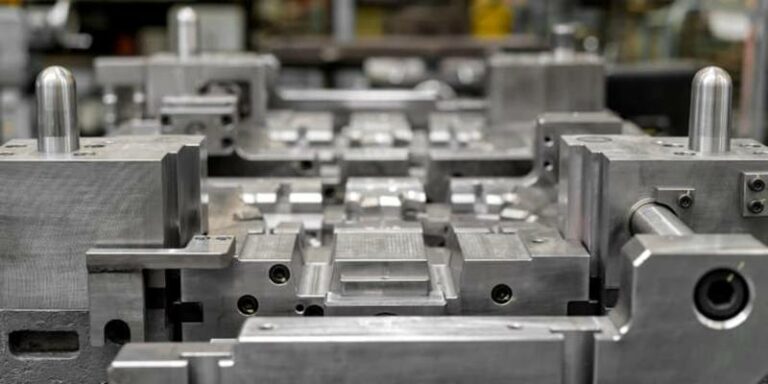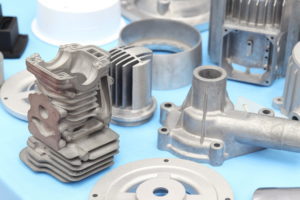Some Ideas on Stahl Specialty Company You Need To Know
Some Ideas on Stahl Specialty Company You Need To Know
Blog Article
Excitement About Stahl Specialty Company
Table of ContentsHow Stahl Specialty Company can Save You Time, Stress, and Money.The 9-Minute Rule for Stahl Specialty CompanyTop Guidelines Of Stahl Specialty CompanyStahl Specialty Company Things To Know Before You BuyRumored Buzz on Stahl Specialty Company
Chemical Contrast of Cast Light weight aluminum Alloys Silicon promotes castability by minimizing the alloy's melting temperature and boosting fluidity during spreading. Furthermore, silicon adds to the alloy's stamina and put on resistance, making it valuable in applications where resilience is important, such as automobile components and engine components.It additionally boosts the machinability of the alloy, making it easier to process right into ended up items. In this means, iron adds to the overall workability of light weight aluminum alloys.
Manganese adds to the stamina of light weight aluminum alloys and improves workability. It is frequently made use of in wrought light weight aluminum items like sheets, extrusions, and accounts. The visibility of manganese help in the alloy's formability and resistance to fracturing during construction processes. Magnesium is a light-weight aspect that offers strength and effect resistance to light weight aluminum alloys.
Zinc improves the castability of light weight aluminum alloys and aids regulate the solidification procedure throughout spreading. It improves the alloy's toughness and solidity.
Excitement About Stahl Specialty Company
Since aluminum-silicon alloys have good spreading residential properties, high gas residential or commercial properties, basic processes, and exceptional deterioration resistance, aluminum-silicon alloys are most frequently utilized in the die-casting industry in the house and abroad. At the exact same time, aluminum-silicon alloys are additionally reasonably early and widely acknowledged alloys developed and utilized in die-casting. After continual study and renovation, the majority of the current global mainstream aluminum-silicon alloys have actually been wrapped up and are absolutely nothing greater than A356, A360, A380, ADC12, B390, and A413.
The primary thermal conductivity, tensile toughness, yield stamina, and elongation vary. Among the above alloys, A356 has the highest thermal conductivity, and A380 and ADC12 have the most affordable.

The Ultimate Guide To Stahl Specialty Company
In precision spreading, 6063 is fit for applications where intricate geometries and top quality surface area coatings are paramount. Instances include telecommunication units, where the alloy's exceptional formability enables for streamlined and aesthetically pleasing designs while keeping architectural integrity. In a similar way, in the Illumination Solutions sector, precision-cast 6063 components develop sophisticated and effective lights fixtures that require elaborate forms and excellent thermal efficiency.
(https://www.pubpub.org/user/frances-howard)
The A360 displays remarkable elongation, making it ideal for facility and thin-walled elements. In precision casting applications, A360 is well-suited for sectors such as Consumer Electronic Devices, Telecommunication, and Power Devices.

In precision spreading, aluminum 413 shines in the Customer Electronic Devices and Power Devices markets. It's commonly utilized to craft intricate elements informative post like smart device housings, camera bodies, and power tool casings. Its precision is impressive, with tight tolerances as much as 0.01 mm, ensuring flawless product setting up. This alloy's exceptional rust resistance makes it an exceptional selection for outside applications, making sure long-lasting, sturdy products in the discussed markets.
What Does Stahl Specialty Company Do?
The aluminum alloy you choose will substantially influence both the casting process and the residential properties of the final item. Since of this, you must make your choice thoroughly and take an informed approach.
Identifying one of the most suitable light weight aluminum alloy for your application will certainly suggest considering a wide variety of characteristics. These comparative alloy qualities adhere to the North American Die Spreading Organization's standards, and we've divided them right into 2 classifications. Casting Foundry. The first classification addresses alloy features that affect the production process. The 2nd covers attributes impacting the buildings of the final product.
The alloy you select for die casting directly influences a number of elements of the spreading procedure, like just how simple the alloy is to collaborate with and if it is prone to casting flaws. Hot cracking, also referred to as solidification breaking, is a normal die spreading defect for aluminum alloys that can cause inner or surface-level rips or splits.
Stahl Specialty Company - Truths
Particular light weight aluminum alloys are much more susceptible to hot cracking than others, and your selection should consider this. One more common issue discovered in the die casting of aluminum is die soldering, which is when the cast sticks to the die walls and makes ejection hard. It can damage both the actors and the die, so you must try to find alloys with high anti-soldering properties.
Deterioration resistance, which is currently a noteworthy characteristic of aluminum, can differ significantly from alloy to alloy and is a vital particular to consider depending upon the ecological conditions your item will be revealed to. Use resistance is an additional residential property typically sought in aluminum items and can distinguish some alloys.
Report this page